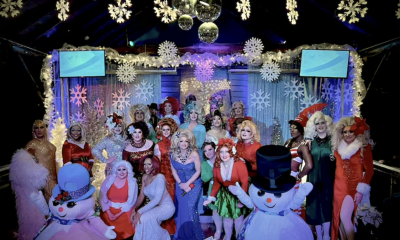Music & Concerts
Billy Gilman plans weekend Bethesda show
Singer overcomes voice changes, industry norms to rebirth career
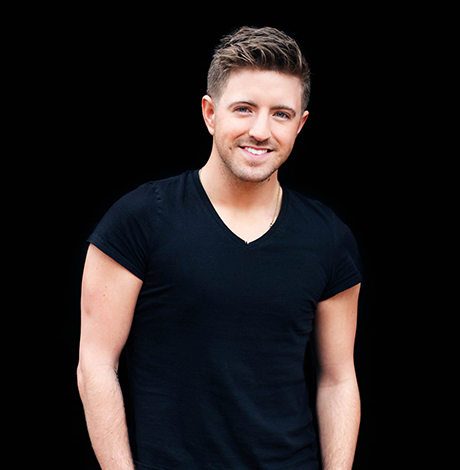
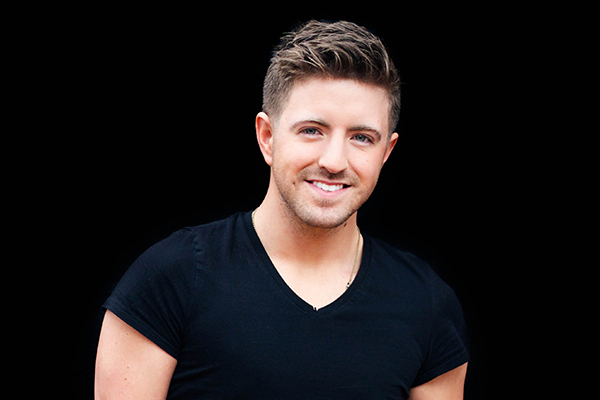
Billy Gilman has big plans to release new music he’s psyched about. (Photo courtesy Bethesda Blues and Jazz)
Billy Gilman
Sunday, Oct. 29
7:30 p.m.
Bethesda Blues and Jazz Supper Club
7119 Wisconsin Ave., Bethesda, Md.
$45-75
Some people fight for years to break into the music industry but Billy Gilman became a star at the early age of 11. His debut single “One Voice” cracked the Billboard Hot 100 and led to a Grammy nomination and plenty of touring.
Gilman’s career started with a bang but began to fizzle when he suddenly seemed to disappear from the music scene. He reemerged with a coming-out video on YouTube that went viral in 2014.
Then in 2016 Gilman auditioned for “The Voice” by singing “When We Were Young” by Adele. He joined Team Adam Levine and swept the competition to become season 11 runner-up. Now Gilman is giving his music career a second go around but says this time it’s going to be more authentically him. Calling from his office desk in his home state of Rhode Island, the now-29-year-old singer spoke with the Washington Blade about his 10-year hiatus, coming out as a country star and if his friendship with Levine was just for the cameras.
WASHINGTON BLADE: What was it like achieving success so early? Did you realize what a big deal it was?
BILLY GILMAN: No. I knew that it was great. But all I was really concerned about was getting on a stage and just having fun. That was my main love. It was almost like a game. It didn’t feel like a job. It didn’t feel like a pressure like, “Oh, we’ve got to get to number one. We’ve got to sell this many units this week.” The pressure is now. Now that I know what’s going on.
BLADE: What were you doing in the 10-year break between your self-titled album in 2006 and your “The Voice” audition in 2016?
GILMAN: My voice really, I don’t know if it was from all the stress it was under traveling for so many years as a kid or whatever, but when my voice changed it was a very bad time. It took a long time for it to come back where I knew I could hold a show on my own and not have to worry, “Oh, is it just going to go and leave me?” It would stay for a song and then it would just vanish, no sound coming out. We would go to the doctor but there really wasn’t any damage, it was just the vocal chords figuring out what they wanted to do. It took two-and-a-half years for me to fully get back out on a stage and be able to hold a show. But I lived in Nashville through all that time co-writing. I raised $2.5 million for the Muscular Dystrophy Association.
So, I was very busy I just really wasn’t doing my thing. I had to find other ways to work and be out in the public eye and not letting that flame die, hoping that my voice would come back. And it did and that began the process of relearning it. You can’t hit those extravagant high notes that you used to hit. You have newer, lower notes.
When you’re told what to act like, what to sound like, how to dress that’s just your mentality. It wasn’t until I started to song write that I realized who I was, and what I loved and what I didn’t like. I knew that Nashville just wasn’t going to buy into it. I was trying to fit the formula when I knew I wasn’t going to fit the formula anymore. But I stayed and cowrote songs for publishing companies, did recordings and all that for five or six years. I knew I wanted to change gears and let my voice do what it was put on earth to do knowing that it can again, which is big ballads. I would do my little country stuff on stage at 12 years old and then I would literally sign autographs, do my duties, get on the bus and just belt out Celine Dion and Michael Bolton. That was just where my voice really fit. But the gimmick was working at 12 years old, a kid singing country music.
So when “The Voice” called, and they had been calling for a few years and I had said, “No, I want to do it on my own.” But usually, if an opportunity comes up and goes away and you ignore it, well that’s your own mistake. But this one kept coming. They just kept persisting. So I said, “You know what if it keeps coming up so strongly in my reality, it’s for a reason.” So I finally gave in and auditioned and the journey really revved up.
BLADE: Did you feel like your prior experience gave you an advantage on “The Voice”?
GILMAN: No. The only thing that helped me was I knew how to hold notes and get around things if I was sick. That helped. But you’re standing toe to toe not knowing what the hell is going on just as much as the person that came from selling cars or behind a desk. There really was no advantage and they didn’t treat me any different. To the onlooker, it looks like it maybe played a role but it really doesn’t. They’re all about quality in all forms. Everyone is the same. That was really great because I was a little timid to talk to anyone in the first couple of weeks in the process. I didn’t know if the other contestants would be upset if they found out or if anyone knew.
So, I didn’t want to cause waves because you never know how people are gonna react. But we really started to get friendly and became friends and family that hopefully will forever be friends and family. The winner of my season had a prior record deal and we didn’t know that. Everyone has a history more often than not. There’s more entertainers that were co-writers on big hits, background singers for someone really famous. Ninety percent of them knew what they were doing or had a name of their own in whatever way prior to the show.
BLADE: Your coach was Adam Levine. Do you still keep in touch with him?
GILMAN: I do. We talk. The ones I talk to are him and Miley (Cyrus) mostly. He’s great. He was very black and white. I like truth and I don’t like to be doted or coddled. It was neat to see someone really get invested in the situation and not just when the cameras are on. He’s awesome.
BLADE: Country music isn’t known for out artists in the same way a genre like pop is. Were you afraid of losing fans coming out as a country singer?
GILMAN: If I’m going to lose fans like that then I don’t care. I’ll go sing on a cruise ship. I will always be a singer. If I was losing fans because I was sending a message that really was not a good one or I went into rap or something that has more of a negative tone I could see that as a hurt. But me being happy and spreading peace and helping some other person possibly, if I lose fans over that then it was meant to happen. At first I told my family and then I slowly started to tell my team. But then I figured it’s no one else’s business. No one else deserves to know. I’m just a singer. You put my record on and you watch my video on YouTube and then you go about your life. You don’t need to know any more about me. Country music especially isn’t the case like that. It’s very family oriented and they want to know their artists. So they advised me to tell them because it was a struggle for me to be successful again.
And when I finally came out to my team they said, “You have no idea the stigma that’s around your name. It’s a horrible thing but that’s the reality of this town.” And I went, “That’s really disgusting. I have a hit song right here. And you’re not going to play it just because of my personal lifestyle?” That’s just the way it works. It’s actually mind boggling. But it is what it is. A high-profile magazine wanted a cover story and I said no because it looks like I’m trying to sell it or find success in something so intense. My team wasn’t too thrilled. But it’s not a publicity stunt. It’s just telling people the situation.
So I opted to do it on YouTube. Because if it were to go viral and do amazing that’s on its own, I didn’t push it. The amount of press that I got from it was great. But the amount of letters, emails that I got from kids in middle America saying, “I was kicked out my home, what do I do? But now I don’t feel alone and I feel like I have a voice to help me through this.” The positive outweighed the negative by almost a 100 percent. People are gonna say what they’re gonna say but they’re gonna do that anyway.
But musically, I was like holy shit where am I going? But I am a singer. I don’t remember a time when I wasn’t. So I knew in my gut that there was no other way for me. I had to trust that it would be OK. Sometimes that’s all you have to go by.
BLADE: Being both gay and a country singer, do you feel an obligation to speak out on events like the Pulse nightclub shooting and the Las Vegas shooting?
GILMAN: The way I feel is every voice is important at certain times. I think that there’s a place and time for my ranting. I could be like one of these artists that get on Twitter every five minutes. But what is that really helping? If you live your truth and you live to help the cause in your everyday life that stands alone as well. I do plenty of events and speak on behalf of GLAAD and the LGBTQ community. It’s just about living your life and not backing down. That’s a win, that’s a stance. Not cowering and being proud of who you are no matter what you are.
BLADE: What projects are you working on? Any new music?
GILMAN: I’m working on some really fun stuff. When I stepped out on “The Voice” stage I told my team I really have to do me this time. That’s such a new kid term, “Do you.” When you say it, it sounds really gross but it’s true. I really had to be who I knew I was and who I created alone. I would go, “Damn it, I wish people would hear this.” But I just wasn’t ready yet to show that part of me. So when “The Voice” came I said, “I gotta do me I think I’m gonna do an Adele song as my audition song” and everyone said, “What?” And I said, “Yeah, that’s where I see myself.” I said this is the biggest platform to see if it will work because if people don’t like it they won’t vote, they won’t download.
Thankfully, America bought into it. It enabled a lot of confidence in that new lane. We just wrapped mixing some songs that will be released. We’re meeting with record labels so I don’t know how long it will take. I could always release it myself if that doesn’t work. But right now they’re fresh off the studio floor. I don’t know when it will come out but it is done. Both regular music and Christmas music. It’s great to have this music that I’ve never had before. It can contend with everyone else and I’ve never had that before.
BLADE: What can people expect from your show?
GILMAN: This one is a little different. It’s a very up close and personal night of songs. My old stuff that people remember, some new stuff. I learned from another very successful artist, “You can do a million original songs but just expect people looking for the popcorn, the beer or the bathroom.” If they don’t know the song you gotta throw in some stuff that they know. So I threw in this little segment, because it’s so popular on TV and YouTube, called Carpool Karaoke. It’s really been working and it’s fun. It’s a variety show of songs that I really love but on the intimate side which is always a fun thing every once in awhile.
Music & Concerts
Red, White, and Beyoncé: Queen Bey takes Cowboy Carter to D.C. for the Fourth of July
The legendary music icon performed on July 4 and 7 to a nearly sold-out Northwest Stadium.

Just in time for Independence Day, Beyoncé lit up Landover’s Commanders Field (formerly FedEx Field) with fireworks and fiery patriotism, bringing her deeply moving and genre-defying “Cowboy Carter” tour to the Washington, D.C. area.
The tour, which takes the global icon across nine cities in support of her chart-topping and Grammy-winning country album “Cowboy Carter,” landed in Prince George’s County, Maryland, over the Fourth of July weekend. From the moment Beyoncé stepped on stage, it was clear this was more than just a concert — it was a reclamation.
Drawing from classic Americana, sharp political commentary, and a reimagined vision of country music, the show served as a powerful reminder of how Black Americans — especially Black women — have long been overlooked in spaces they helped create. “Cowboy Carter” released in March 2024, is the second act in Beyoncé’s genre-traversing trilogy. With it, she became the first Black woman to win a Grammy for Best Country Album and also took home the coveted Album of the Year.
The record examines the Black American experience through the lens of country music, grappling with the tension between the mythology of the American Dream and the lived realities of those historically excluded from it. That theme comes alive in the show’s opening number, “American Requiem,” where Beyoncé sings:
“Said I wouldn’t saddle up, but
If that ain’t country, tell me, what is?
Plant my bare feet on solid ground for years
They don’t, don’t know how hard I had to fight for this
When I sing my song…”
Throughout the performance, Beyoncé incorporated arresting visuals: Black cowboys on horseback, vintage American iconography, and Fox News clips criticizing her genre shift — all woven together with voiceovers from country legends like Dolly Parton and Willie Nelson. The result was a multimedia masterclass in storytelling and subversion.
The “Cowboy Carter” tour has been a social media sensation for weeks, with fans scrambling for tickets, curating elaborate “cowboy couture” outfits, and tailgating under the summer sun. At Commanders Field, thousands waited in long lines for exclusive merch and even longer ones to enter the stadium — a pilgrimage that, for many, felt more like attending church than a concert.
One group out in full force for the concert was Black queer men — some rocking “denim on denim on denim on denim,” while others opted for more polished Cowboy Couture looks. The celebration of Black identity within Americana was ever-present, making the concert feel like the world’s biggest gay country-western club.
A standout moment of the night was the appearance of Beyoncé’s 13-year-old daughter, Blue Ivy Carter. Commanding the stage with poise and power, she matched the intensity and choreography of her mother and the professional dancers — a remarkable feat for someone her age and a clear sign that the Carter legacy continues to shine.
It’s been nearly two decades since Beyoncé and Destiny’s Child parted ways, and since then, she’s more than lived up to her title as the voice of a generation. With “Cowboy Carter,” she’s not just making music — she’s rewriting history and reclaiming the space Black artists have always deserved in the country canon.
Music & Concerts
Berkshire Choral to commemorate Matthew Shepard’s life
Concert held at Washington National Cathedral
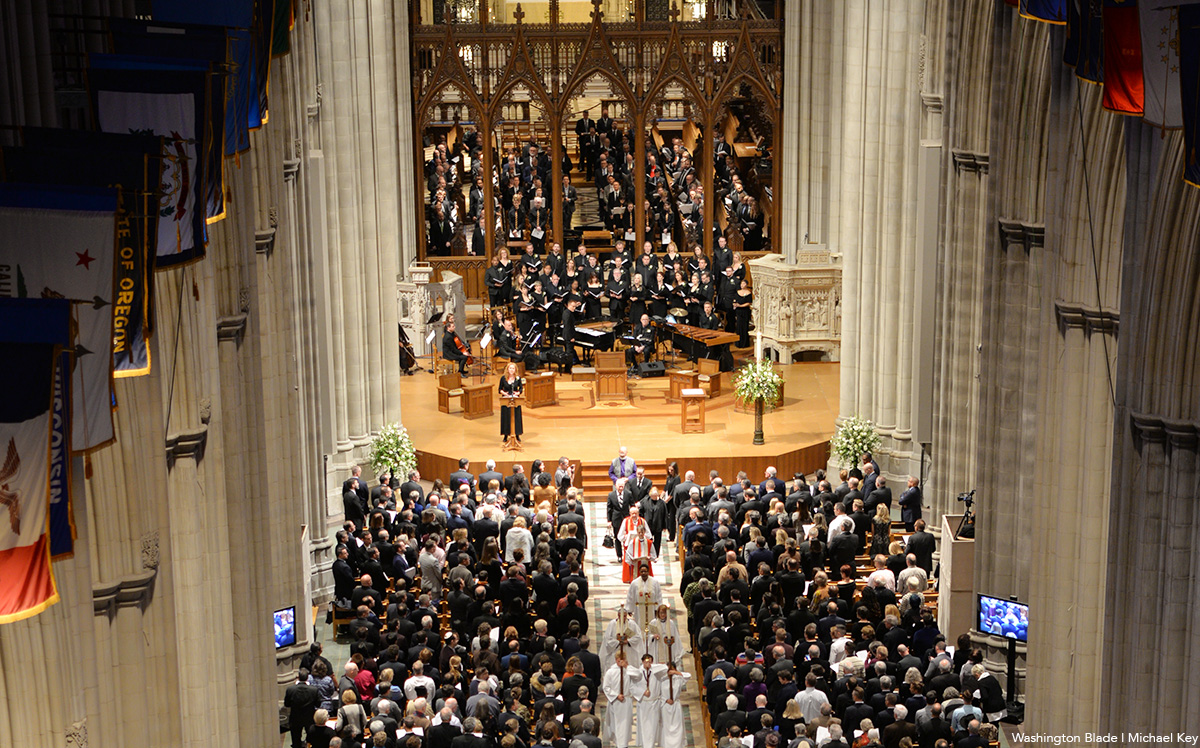
Berkshire Choral International will present a concert performance of composer Craig Hella Johnson’s fusion oratorio “Considering Matthew Shepard” on Friday, July 11, 2025 at 7:30 p.m. at the Washington National Cathedral.
The program will be guest conducted by Dr. Jeffrey Benson, a native of the DMV who currently serves as Director of Choral Activities at San José State University. The concert is a partial benefit for the Matthew Shepard Foundation. Notably, Matthew’s remains are interred at the National Cathedral and his parents, Dennis and Judy, will give opening remarks at the performance.
Tickets are $20 – $65, and 50% of ticket proceeds will be donated to the Matthew Shepard Foundation. Tickets are only available online at berkshirechoral.org.
Music & Concerts
Indigo Girls coming to Capital One Hall
Stars take center stage alongside Fairfax Symphony
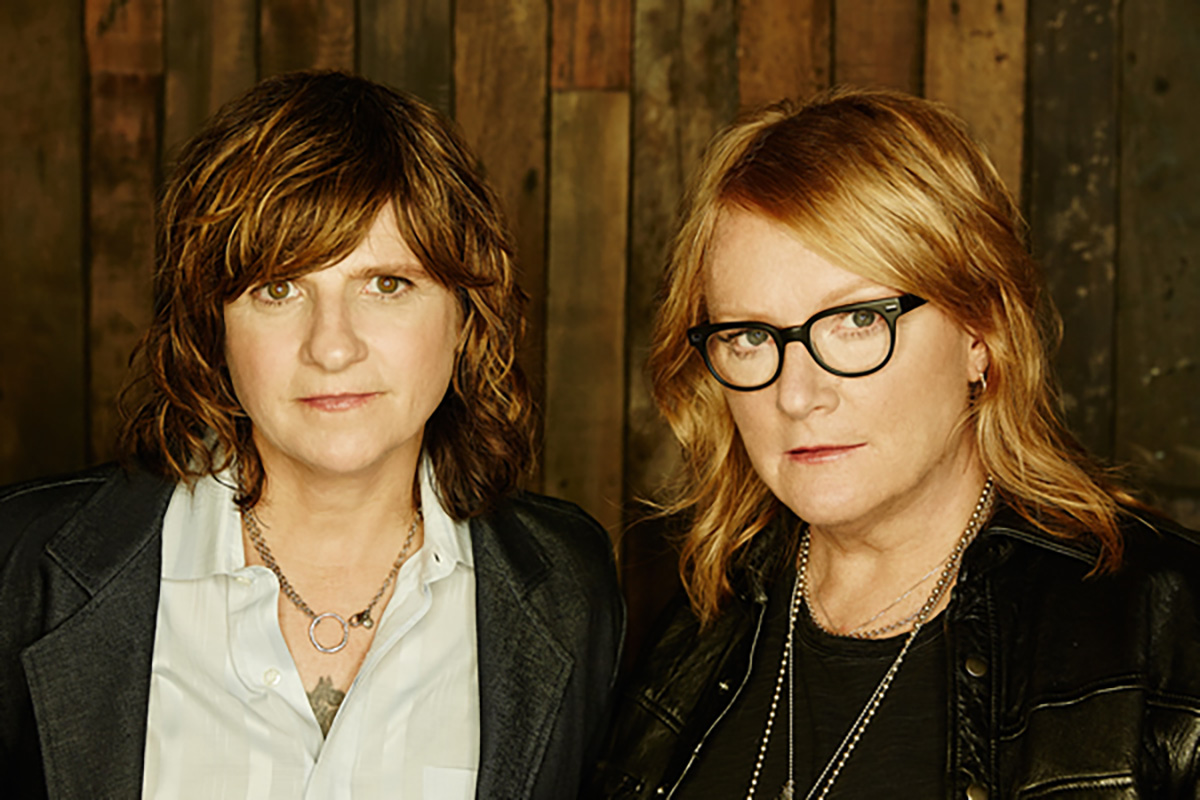
Capital One Center will host “The Indigo Girls with the Fairfax Symphony Orchestra” on Thursday, June 19 and Friday, June 20 at 8 p.m. at Capital One Hall.
The Grammy Award-winning folk and pop stars will take center stage alongside the Fairfax Symphony, conducted by Jason Seber. The concerts feature orchestrations of iconic hits such as “Power of Two,” “Get Out The Map,” “Least Complicated,” “Ghost,” “Kid Fears,” “Galileo,” “Closer to Fine,” and many more.
Tickets are available on Ticketmaster or in person at Capital One Hall the nights of the concerts.
-

 Federal Government2 days ago
Federal Government2 days agoTreasury Department has a gay secretary but LGBTQ staff are under siege
-

 Virginia3 days ago
Virginia3 days agoDefying trends, new LGBTQ center opens in rural Winchester, Va.
-

 District of Columbia2 days ago
District of Columbia2 days agoGay GOP group hosts Ernst, 3 House members — all of whom oppose Equality Act
-

 Opinions4 days ago
Opinions4 days agoUSAID’s demise: America’s global betrayal of trust with LGBTQ people



